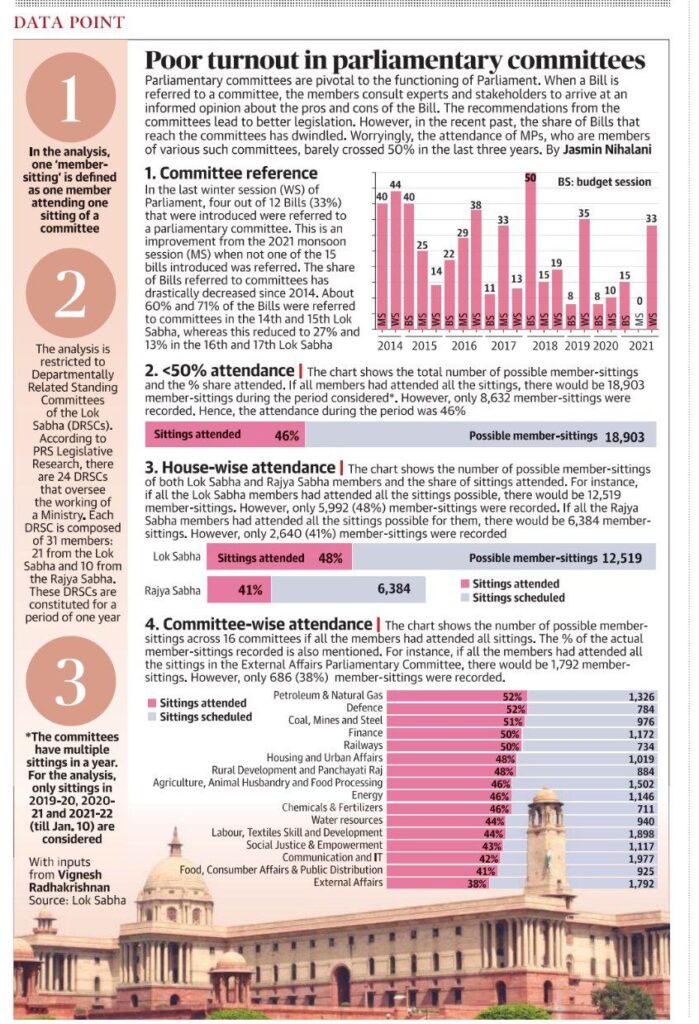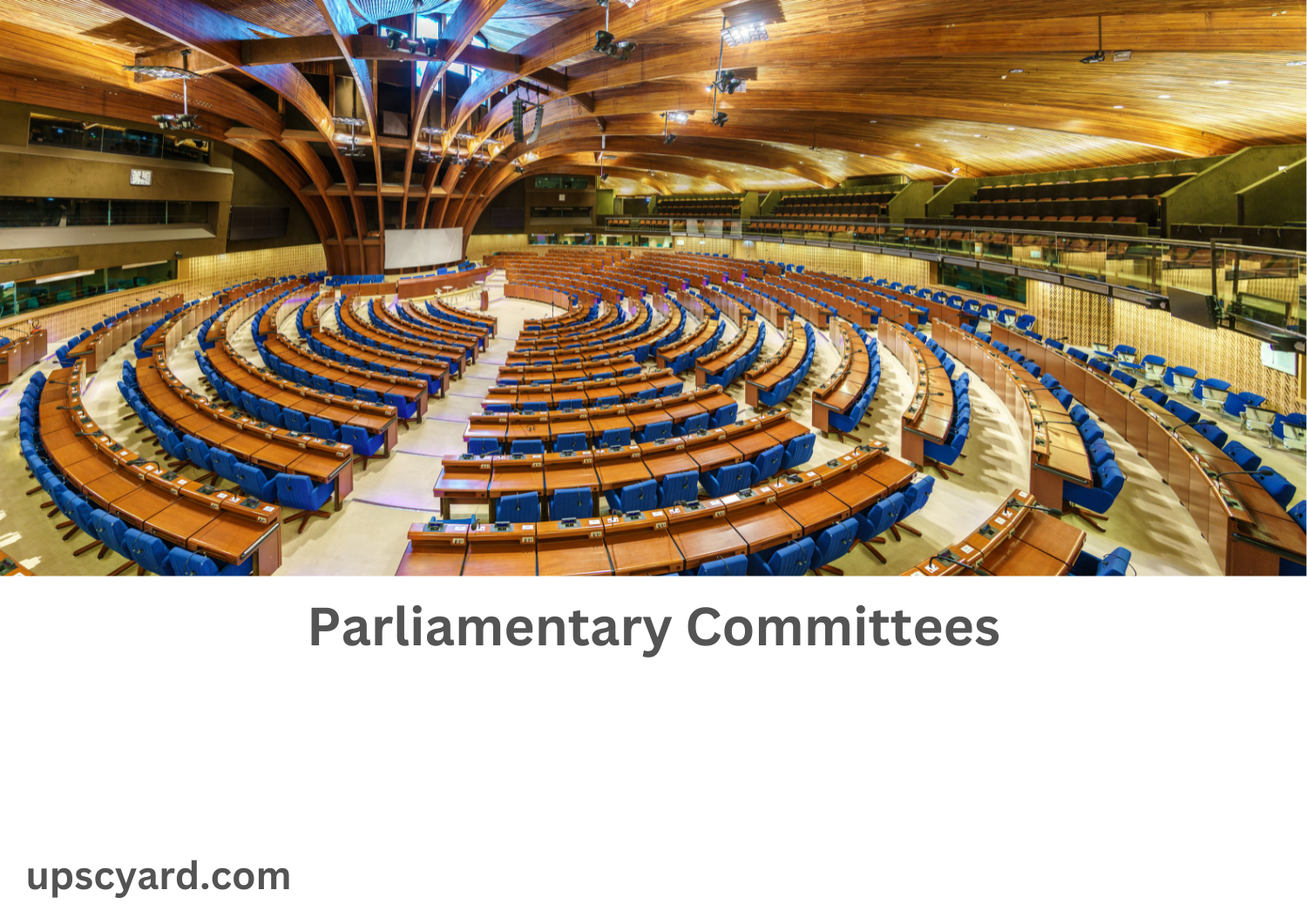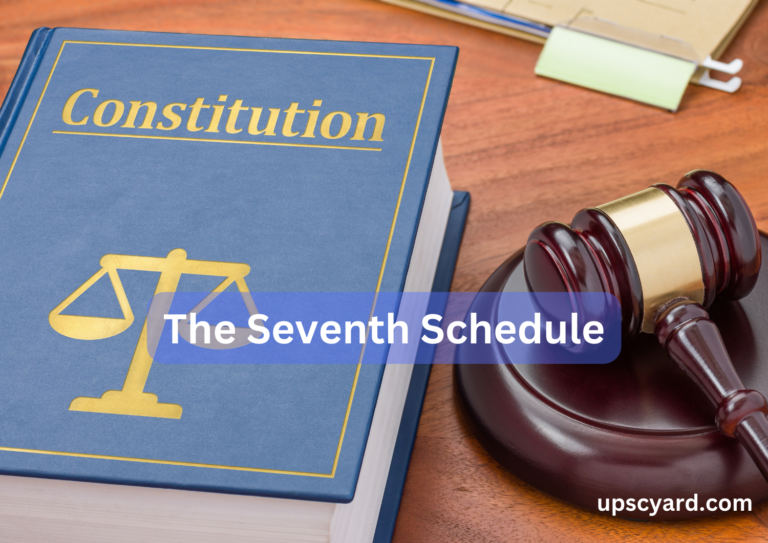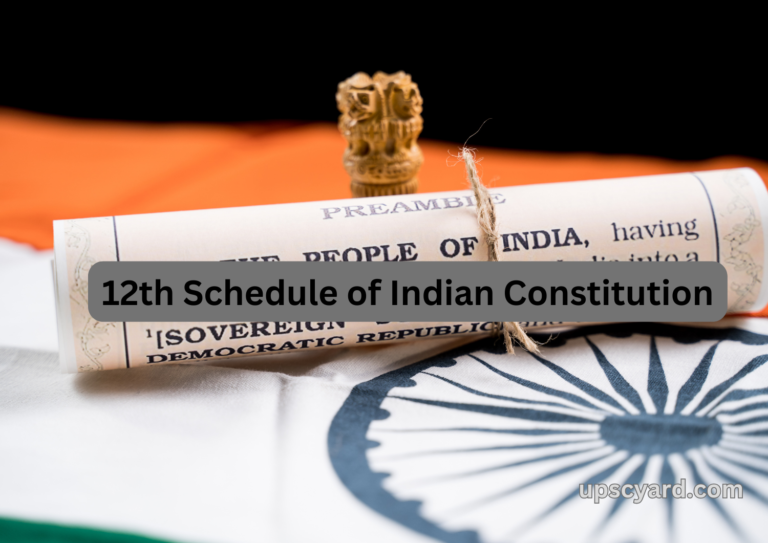Here is the Document of Parliamentary Committees by Government
Deciphering the Realm of Parliamentary Committees
Introduction to Parliamentary Committees:
- Within the intricate tapestry of parliamentary proceedings, we encounter two distinctive types of committees that play a pivotal role.
- These committees are a permanent fixture in the parliamentary landscape, and they spring to life anew every year to ensure continuity in their work.
Ad Hoc Committees:
- In contrast, ad hoc committees are temporary. They enter the scene with a specific task and gracefully exit upon accomplishing their mission.
Constitutional Basis:
- The foundation for these committees can be found scattered across the constitutional text. However, specific provisions about their composition, tenure, and such aspects are entrusted to the rules of the two houses of Parliament.
Primary Objectives of Parliamentary Standing Committees:
- The overarching mission of Parliamentary Standing Committees (PSCs) is a multi-faceted one:
- Detailed Scrutiny and Government Accountability: They meticulously scrutinize various matters while upholding the principle of government accountability. This work is conducted in a non-partisan manner.
- Empowering the Opposition: PSCs facilitate a more robust role for the Opposition in exerting control over the executive.
- Stakeholder Engagement: These committees establish a vital engagement bridge with relevant stakeholders.
- Ensuring Fiscal Prudence: Another feather in their cap is their role in ensuring financial prudence in government operations.
Legislative Authority:
- PSCs derive their authority from two fundamental articles within the constitutional framework: Article 105, which delves into the privileges of Parliament members, and Article 118, which empowers Parliament to establish rules governing its procedure and conduct of business.
Non-Binding Recommendations:
- It’s imperative to note that while these committees provide invaluable insights and recommendations, Parliament is not bound by their counsel. The wisdom and decision ultimately lie with the larger parliamentary body.
Diverse Spectrum of Standing Committees:
- Within the realm of Standing Committees, they can be categorized into six distinct types based on the nature of their functions:
- Financial Committees
- Departmental Standing Committees: Aligned with specific Ministries and Departments.
- Committees to Inquire
- Committees to Scrutinize and Control
- Committees Relating to the Day-to-Day Business of the House
- House-Keeping Committees or Service Committees
These parliamentary committees are integral to the democratic process, adding depth and rigour to the legislative machinery while promoting transparency, accountability, and participatory governance.
Parliamentary Committees
Parliamentary committees are running with 50% attendence of MPs shows why every bill take so much time to pass in parliament.

Unlocking the Role and Mechanisms of the Joint Parliamentary Committee (JPC)
Introducing the JPC:
- A Joint Parliamentary Committee (JPC) serves a pivotal role within the parliamentary framework by focusing on scrutinizing specific bills presented in Parliament. Additionally, it plays a crucial role in investigating financial irregularities within various government activities.
The Nature of the JPC:
- It’s essential to understand that a JPC operates as an ad-hoc body. In simpler terms, it is established for a defined period, and its purpose is singular: addressing a particular issue of significance.
Constitution of the JPC:
- The initiation of a JPC hinges on the passage of a motion in one House of Parliament, subsequently receiving support from the other House. The constitution of this committee relies on the collective decisions made within the Parliament. The number of members can fluctuate, but it generally follows the pattern of having twice the number of Lok Sabha members compared to the Rajya Sabha.
Empowering the JPC:
- A JPC possesses a suite of powers and functions for its investigative role. These include the authority to gather oral or written evidence and the capacity to request essential documents pertinent to the matter under scrutiny. The proceedings and findings of the JPC are typically kept confidential, barring instances of substantial public interest. In cases where documents are deemed detrimental to the state’s security or claims, the government holds the prerogative to withhold them. Disputes concerning the call for evidence find resolution under the Speaker’s judgment. The JPC is also empowered to summon individuals for testimony, including inviting relevant parties for inquiries. Upon the submission of its report to Parliament, the JPC dissolves.
The Joint Parliamentary Committee is an essential instrument of parliamentary oversight, ensuring that bills and government activities are thoroughly examined and scrutinized for the more significant benefit of the nation.
Exploring the Significance of the Parliamentary Committee on Official Language
- The 36th meeting of the Parliamentary Committee on Official Language, presided over by the Union Home Minister, has garnered attention.
Inception of the Committee:
- The origins of the Parliamentary Committee on Official Languages can be traced back to 1976, established under section 4 of the Official Languages Act of 1963.
The Committee’s Core Mandate:
- A pivotal aspect of the Committee’s work revolves around assessing the advancement of Hindi’s use for official purposes within the Union. It fulfils this mission by submitting a comprehensive report containing its recommendations to the President. Subsequently, the President is entrusted with presenting this report before each House of Parliament and disseminating it to all State Governments.
Composition Insights:
- The Committee is composed of a total of 30 Members of Parliament, drawn from both houses. This group comprises 20 members from the Lok Sabha and 10 from the Rajya Sabha.
Election of the Chairman:
- The Chairman of this esteemed Committee is selected through an election conducted by the Committee’s members. Traditionally, the Union Home Minister has often been chosen as the Chairman of the Committee.
The Parliamentary Committee on Official Languages, rooted in the framework of the Official Languages Act of 1963, shoulders the responsibility of monitoring the progress and use of Hindi in official domains. Its recommendations serve as a compass, guiding the way forward in fostering linguistic harmony and efficiency within the administrative fabric of the nation.
F.A.Q.
Q. What is joint Parliamentary Committees ?
Answer: A Joint Parliamentary Committee (JPC) serves a pivotal role within the parliamentary framework by focusing on scrutinizing specific bills presented in Parliament. Additionally, it plays a crucial role in investigating financial irregularities within various government activities.
Q. Can attorney general be a member of Parliamentary Committees
Answer: Is not typically a member of parliamentary committees
Q. Which of the following provides for the establishment of the Cabinet Committees:-
A) Constitution of India
B) B. Parliamentary statutes
C) Rules of Business
D) Presidential Orders
Answers: C




